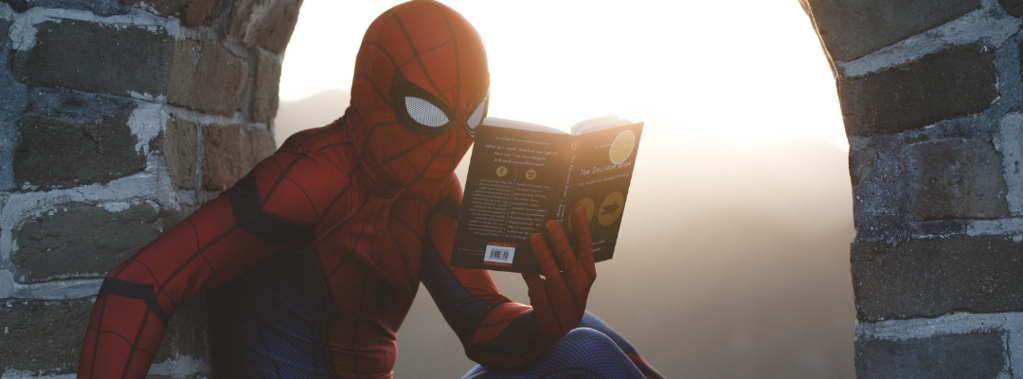- You are here:
- Home »
- Blog

How Your Hogwarts House Can Influence and Improve Your Writing
I identify as a Ravenclaw with secondary Hufflepuff leanings (Pottermore says I’m a Hufflepuff, but, like Harry, I chose with my heart). I love being a Ravenclaw, but until a short time ago, I tended to confine that identity to the fictional world and niche culture.
It wasn’t until recently that I realized knowing my Hogwarts house could explain many choices I’ve made as a writer. Additionally, I’m hoping this knowledge will guide me in future career choices.
Before we go further, let me clarify that your Hogwarts house shouldn’t be the determining factor in your project selections or career choices. However, knowing you write like a Ravenclaw with Hufflepuff leanings or a Gryffindor with Slytherin leanings can help you understand why you write as you do, which audiences to target, and what your strengths and weaknesses are.
With that said, let’s put on the writing version of the Sorting Hat and get started.

Writers’ Rough Drafts – Episode #42 With Mason Currey
Or listen on: iTunes| Stitcher| Spotify| Google Play| Download
Mason Currey is a writer, editor, and author living in Los Angeles. His work has appeared in publications like The New York Times and Slate, and before he took to writing full-time, he worked in journalism and magazines, working his way up from Assistant to the Publisher to Managing Editor at Metropolis magazine, then working as the Executive Editor at Print magazine and Senior Editor at Core77.
A writer at heart, he found himself wanting to sit down and work on the book he wanted to write, only to hit major writer’s block—if he was even able to make time with that busy schedule. This led him to start seeking out the habits and rituals of other prominent creatives, seeing if he could find inspiration for his own project. As he read more, he realized that others might be interested in such material, and began compiling and curating some of the most fascinating (and frankly mundane) routines that led to some of the greatest pieces of art and literature in his first book, Daily Rituals: How Artists Work.
With famous fans ranging from Lena Dunham to Tim Ferriss, my favorite review of the book comes from The Literary Review, stating that it is “a delightful book, full of quirks and oddities.” Realizing after publication that the book featured a predominantly male subject demographic, he set about researching famous women’s daily rituals soon after, and his newest book Daily Rituals: Women at Work comes out today—in March 2019 for those not listening on March 5!
Continue reading
Content Might Be King, but Context Is Queen
We’ve all had the saying “content is king” thrown at us by some marketing guru’s blog, e-book or webinar series. The phrase originated in an essay by Bill Gates in 1996, where he explained that content will make the majority of money on the internet, just as it did in previous forms of broadcasting.
Since then, the phrase has dictated the behaviour of brands and marketers online like a religious text.
(I wonder whether it would have if someone other than Gates had made the claim?)
While he was certainly correct in his statement, content is now not the only driving force in successful branding and marketing.
People have caught on to the content game, so something else is now needed to distinguish excellent branding from average marketing. This is particularly true for brands trying to engage younger people on social media.
That “thing” is context.

The Search for Community as a Remote Professional Writer
Writing is a solitary activity, that’s for sure. And that solitude, for some people, can really help them feel productive and creative.
Even as an extrovert, I find that there are times that I need to be alone in order to get work done, whether it’s editing, writing, or communicating with the team at CYC.
Last summer, though, I reached a breaking point with my remote work lifestyle. It took a few months of working alone at home, or in coffee shops, all the time, for me to realize just how alone I truly felt.
One day it hit me: I’m not a person who enjoys working alone. I am not an introvert.
Being alone started to take a toll on my mental health and thus my ability to get work done. Lack of motivation, lack of energy, and general apathy started to take over, making projects that I loved to do very taxing and frustrating.
After lying in bed in the middle of a sunny summer afternoon—on a weekday—too many days in a row due to lack of energy, I knew something had to change. I needed to find some type of community to help me find that energy again.
Continue reading